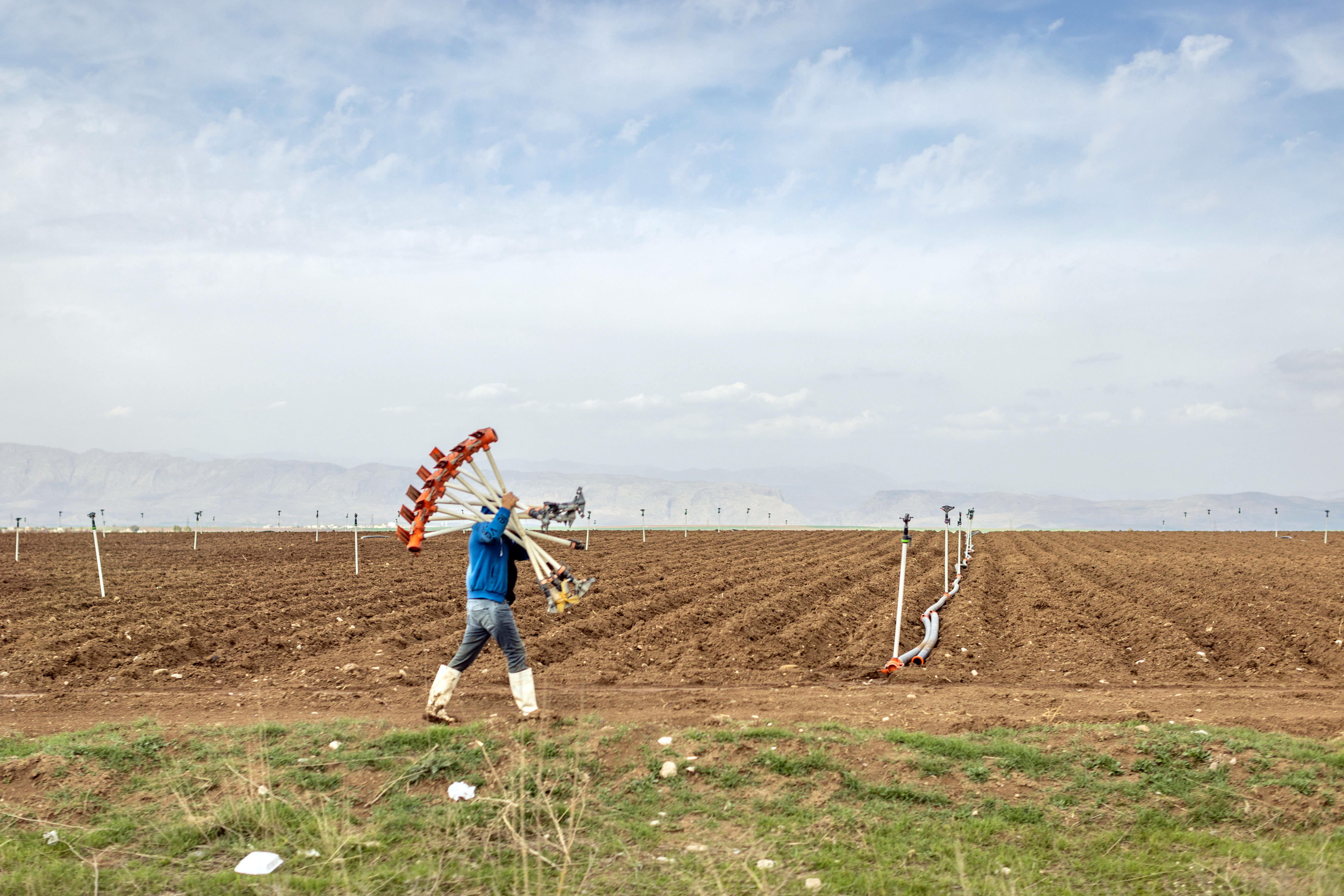A farmer carries irrigation pipes to a field near Zakho, Iraq.
Copyright© Kira Hofmann/photothek.de
Core area “Climate and energy, just transition” Using renewable energy, improving resource management
There is a constant decrease in precipitation and water resources. The two main rivers, the Euphrates and Tigris are at risk of drying up within the next 20 years. The World Bank has warned that in case of a continued increase in annual average temperatures combined with a fall in precipitation, Iraq’s freshwater resources could decrease by 20 per cent by 2035.
In addition to climate change, high population growth, overexploitation of soils, the pollution of rivers, and the construction of dams are further worsening the situation. What is more, neighbouring countries which are also very much affected by climate change and water shortage, in particular Turkey and Iran, are taking a lot of water from rivers upstream. The southern parts of Iraq in particular are affected by salinisation of the soil, decreasing harvests and conflicts over pasture land and watering points.
New political openness and increased cooperation
The Iraqi government has recognised the urgent need for action and wants to engage more in climate action. Strategy papers have been drafted and budget funds made available for adaptation measures and to mitigate greenhouse gas emissions. In 2023, Iraq was actively involved in the World climate conference for the first time. In addition, the country is working on reviewing its nationally determined contributions with support from the àNDC partnership.
Cooperation in the context of the new core area was officially agreed at the government negotiations in November 2023 and is currently being established. Support is to be provided, in particular, to projects aimed at expanding renewable energies and to climate-resilient water resources management. In the context of Financial Cooperation, Germany and Iraq already signed an agreement for a joint project for sustainable water supply in the south-western parts of the country in 2022. The project will give 130,000 people in the Muthanna region access to safe water.
The new focus on climate and energy has led to development activities being shifted to other regions. Whilst a large part of measures in recent years were implemented in the North of the country which was especially affected by destruction and displacement, more attention is now also given to the southern parts of the country that are increasingly affected by climate change.
As at: 07/08/2024
